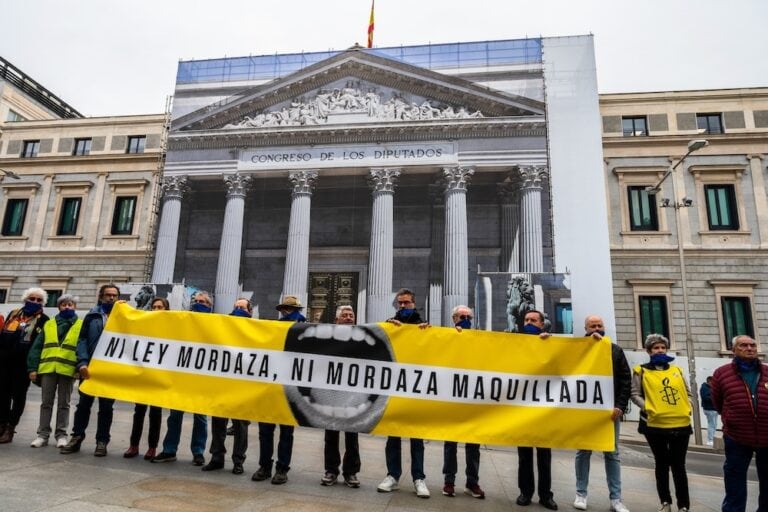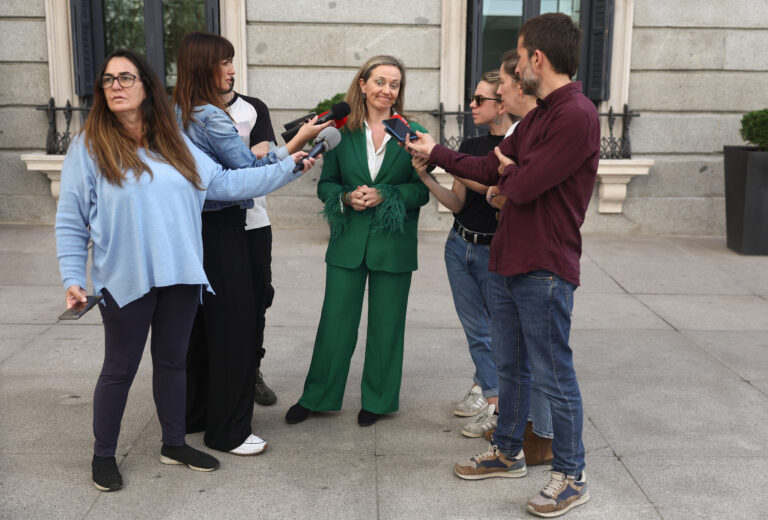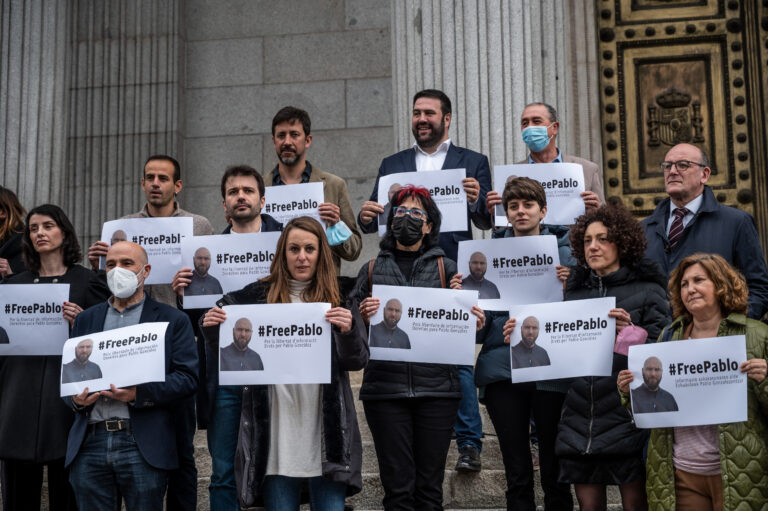(RSF/IFEX) – In two letters to Vice-Prime Minister and Minister of the Interior Mariano Rajoy Brey and Basque Government Interior Councillor Xabier Balza, respectively, RSF protested the recurrence of violence against the press. RSF’s protest came in response to the attack perpetrated, on 28 August 2001, against the home of the illustrator for the newspaper […]
(RSF/IFEX) – In two letters to Vice-Prime Minister and Minister of the Interior Mariano Rajoy Brey and Basque Government Interior Councillor Xabier Balza, respectively, RSF protested the recurrence of violence against the press. RSF’s protest came in response to the attack perpetrated, on 28 August 2001, against the home of the illustrator for the newspaper “El Diario Vasco” in San Sebastian (Spanish Basque Country).
“We are concerned that this attack begins a new phase of attacks on the press, the aim of which we know is to kill,” said RSF Secretary-General Robert Ménard. “We ask that you do everything possible to prevent new attacks,” added Ménard.
According to information collected by RSF, on 28 August, an incendiary bomb partially exploded in front of the home of José Maria Aleman Amudarian, press artist for the newspaper “El Diario Vasco”. This attack, in which no one was injured, was attributed by Basque regional police to the Kale borroka (urban struggle), a group tied to the Spanish Basque terrorist organisation Euskadi ta Askatasuna (ETA). On 26 August, a Molotov cocktail attack on the national radio SER headquarters, in Irun (Basque Country), was also attributed to Kale borroka. The newspaper “El Diario Vasco” has repeatedly been the target of attacks. On 7 December 2000, a bomb made from three bottles of gas was found in front of the headquarters of the newspaper in Eibar (Basque Country). On 13 May 2000, a bottle filled with powder exploded in front of the daily’s headquarters in San Sebastian.
RSF noted that across Spain, and particularly in Basque Country, the media and journalists who do not share ETA’s radical nationalist ideology are threatened with death. On 24 May 2001, Santiago Oleaga Elejabarrieta, chief financial officer of the daily “El Diario Vasco” in Basque Country, was murdered at point-blank range in San Sebastian, in an attack attributed to ETA (see IFEX alerts of 25 and 24 May 2001). José Luis Lopez de Lacalle, journalist for the daily “El Mundo” in Basque Country, was assassinated in May 2000 in an attack that ETA claimed responsibility for (see IFEX alerts of 8 and 10 May 2000). In the months which followed his assassination, threats and bomb attacks against journalists and newspaper offices have multiplied. On 15 May 2001, Basque journalist Gorka Landaburu, a correspondent for the Madrid-based magazine “Cambio 16” and for Radio France, suffered injuries to his hands and face when a parcel bomb that was delivered to his home exploded (see IFEX alerts of 17 and 16 May 2001). In total, close to 100 journalists are currently under official or private protection.
RSF launched a support network for journalists in the Spanish Basque Country who have been threatened by ETA while carrying out their profession. European media are invited to send one of their journalists to San Sebastian, Bilbao, for a few days to visit newpaper offices and witness the press professionals’ working conditions in the region. The first media groups to participate in this “support network” are the Belgian daily “Le Soir”, the Irish daily “Irish Times”, the French daily “Le Monde”, the Austrian television station ORF, the Austrian daily “Kurier”, the Italian daily “Corriere della Sera” and Radio France. RSF’s Spanish division will coordinate this operation, facilitating contacts between European journalists, their Basque colleagues and those involved locally.


